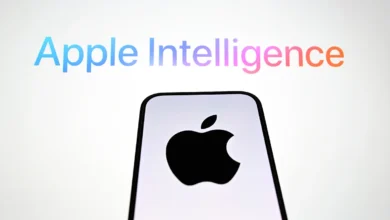Are Algorithms Stealing Our Free Will? Jack Dorsey and Elon Musk Spark Debate
 |
| Jack Dorsey – The Co-Founder of Twitter (now X) |
annual Oslo Freedom Forum, Jack Dorsey, the co-founder of Twitter, ignited a
firestorm with his comments on the insidious influence of social media
algorithms. Dorsey, expressing a sense of remorse for his creation, argued that
the pursuit of user engagement has morphed into a threat to free will itself.
This sentiment resonated deeply
with Elon Musk, the tech magnate who recently acquired Twitter’s rival
platform, X. Musk took to his own platform to voice his agreement, adding fuel
to the already raging debate.
Dorsey argued that the real
debate is not about free speech, but rather about free will. He stated that
people are being programmed by algorithms based on their interests, and these
algorithms continue to build biases as users engage with the content. Dorsey believes
that even if algorithms are made transparent or open-source, they remain
difficult to fully understand and predict.
Musk, who acquired Twitter for
$44 billion in November 2022 and rebranded it as X, echoed Dorsey’s sentiments,
tweeting “Jack is right”. Dorsey suggested that the solution is to
create a marketplace of algorithms where users can choose the ones they trust
and easily switch between them.
But before we delve deeper into
the concerns raised by these tech titans, let’s dissect the very mechanics that
underpin the social media landscape:
How the Algorithm Engine Purrs
At the heart of every social
media platform lies a complex algorithm, a sophisticated computer program
designed to curate content specifically for each user. This seemingly innocuous
function, however, wields immense power. Here’s how it works:
- Data Collection: Social media platforms are
data vacuums, meticulously collecting information on your every
interaction. Likes, shares, comments, browsing history – all these
seemingly trivial actions paint a detailed picture of your interests and
preferences. - Profiling and Prediction: This collected data
is then fed into powerful algorithms that build a unique profile of you.
The algorithm not only identifies your interests but also predicts what
kind of content is most likely to keep you engaged – the holy grail of
user retention. - The Filter Bubble: Armed with this knowledge,
the algorithm personalizes your feed, prioritizing content that aligns
with your profile. This creates an echo chamber effect, a “filter
bubble” where you’re predominantly exposed to viewpoints that
reinforce your existing beliefs.
The Algorithmic Labyrinth: A
Threat to Free Will?
Dorsey’s argument hinges on the
concern that these algorithms are subtly manipulating our exposure to
information, effectively limiting our ability to explore diverse viewpoints and
fostering a sense of intellectual stagnation.
Imagine a library where the
librarian, instead of offering a vast array of books, only shows you titles
that align with your past reading choices. Over time, your intellectual
curiosity atrophies, replaced by a confirmation bias loop.
This, according to Dorsey and
Musk, is the insidious nature of social media algorithms. They argue that these
algorithms are not simply reflecting our preferences – they are actively
shaping them, potentially eroding our ability to think critically and engage in
independent thought.
Beyond the Echo Chamber:
Solutions and the Future of Social Media
The concerns raised by Dorsey and
Musk are a potent call to action. So, how do we navigate the algorithmic
labyrinth and reclaim our free will in the digital age? Here are some potential
solutions:
- Algorithmic Transparency: Demystifying the
algorithmic process is crucial. Users deserve to understand how their data
is being used and how content is being curated for them. - Promoting Algorithmic Diversity: Platforms can
explore ways to diversify the content displayed in feeds, ensuring
exposure to a wider range of viewpoints. - User Control over Algorithms: Empowering users
with the ability to fine-tune their algorithms, allowing them to
prioritize diverse perspectives and break free from echo chambers.
The debate sparked by Dorsey and
Musk is a critical one. As we move deeper into a digital future dominated by
social media, the question of free will and algorithmic influence looms large.
By fostering a more transparent and user-centric approach, we can ensure that
social media platforms remain tools for connection and exploration, not
instruments of intellectual confinement.
The former Twitter CEO also
warned that as artificial intelligence (AI) advances, with companies like
OpenAI, Microsoft, Google’s DeepMind, Meta, and Amazon-backed Anthropic
building powerful AI tools, people will become even more reliant on these
technologies. Dorsey emphasized the importance of not relying on any single CEO
or company for these critical AI developments
Let the conversation continue! Share your thoughts on social media
algorithms and their impact on free will in the comments below!



